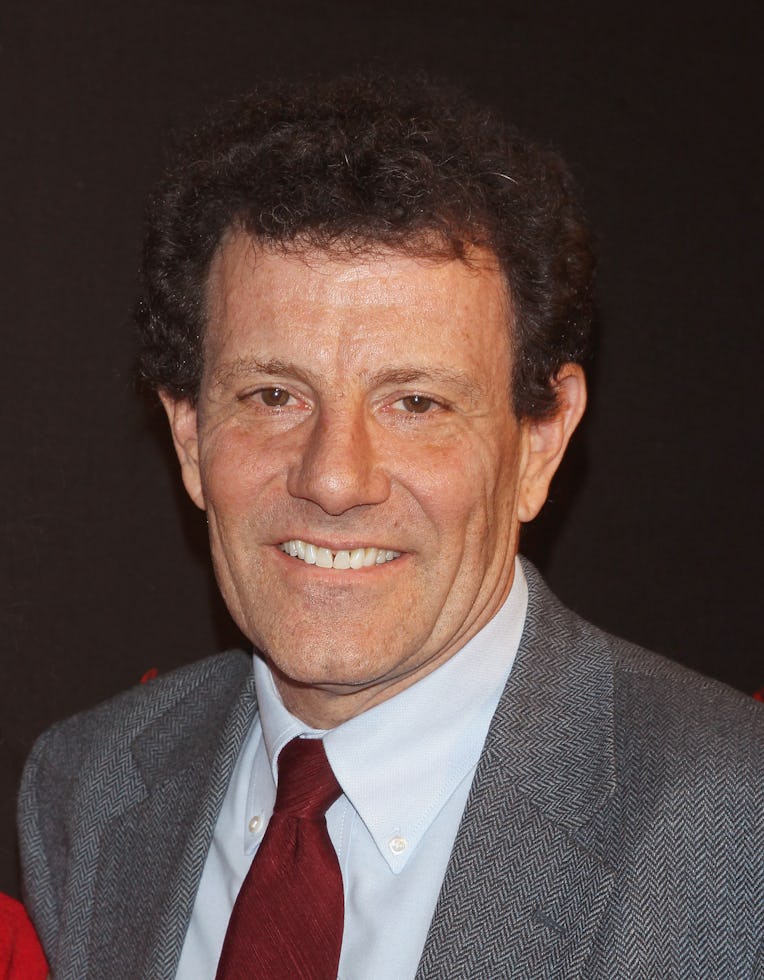Vigneron Nick Kristof Not Worried About 'Pinot Noir Alcoholism'
“You know, I’ve lost friends to alcoholism, but I haven’t lost any to Pinot Noir alcoholism.”

It is unclear what former New York Times columnist Nicholas Kristof will do next, but one thing he will not do is run for governor of Oregon. The state Supreme Court determined as much in February. The rationale was that, while Kristof does own and operate a Portland-area farm, he has not lived in the state in the technical sense, or at least enough to meet the office’s three-year residency requirement. He voted in New York. He licensed his car in New York. He also lived in New York, in a Scarsdale mansion that last year, he and his wife put in a “private trust.” According to a new piece in New York magazine, the ruling is fine with Kristof. He told Olivia Nuzzi: “I didn’t feel any burning ambition to be a politician whatsoever.”
But for the time being, Kristof does reside in Oregon, on the family estate and vineyard that Nuzzi suggested had been formed in part to furnish his “small-business credentials.” This involves brewing cider from his own apples — which sells at the nearby deli for $11 a bottle — and making Pinot Noir, from, as Nuzzi put it, the “patch of grapes” he planted. In the piece, Nuzzi describes walking around said patch while Kristof mused about “his friends and neighbors who had overdosed or committed suicide.” That very morning, in fact, he’d read a suicide note on Facebook from a friend struggling with addiction.
This digression likely stemmed from one of the cornerstones of Kristof’s former campaign. On his website, which is still up, Kristof details at length his plans to remedy the state’s housing crisis, which has left some 22,000 children statewide without homes. Relative to the other West Coast public figures campaigning on homelessness, Kristof’s prescriptions were fairly progressive — he underscored the need to rapidly build emergency and permanent housing, and expand unemployment benefits, rental assistance, as well as paid family and medical leave. Another key factor for him: ensuring access to addiction treatment. That’s not necessarily at odds with owning and operating a cider brewery-slash-vineyard. But there is, perhaps, some tension there. And for all his communications skills, Kristof communicated that tension like this:
“I don’t think that most people appreciate that most years, alcohol kills more people than drugs,” Kristof told me, though he clarified that he does not believe this is true of the type of alcohol that he makes. He also does not think that profiting off the sale of alcohol and lowering rates of alcohol addiction, two of his stated immediate goals, are in conflict. “You know, I’ve lost friends to alcoholism, but I haven’t lost any to Pinot Noir alcoholism,” he said.
A thorough study of WASPs in the tri-state area might find that Pinot Noir alcoholism has claimed more lives than he suggests. But to be fair, Kristof doesn’t live in New York anymore. He went on to clarify:
“I wouldn’t be in favor of barring alcohol in general. I think that wine can be, or cider can be, a social good and can create social capital. Things that bring people together, I think, are good for society. I think alcohol can do that, and I think that’s true of wine and cider. I take your point that some people start with nice Pinot Noirs and then… ,” he trailed off. “But I think that is much less common, and those who die, the mortality from alcoholism, it’s driven really by working-class Americans, and it’s in kind of bulk hard liquor particularly. I don’t think that good wine and cider add significantly to the problem.”
So there you have it: addiction mortality is a working class problem, and his wine is for the wealthy. Arguably, his campaign was as well; Nuzzi pointed out that Kristof’s five-digit donors included Melinda Gates, Goldman Sachs alum David Cohen, Sheryl Sandberg’s fiancé Thomas Bernthal, and Angelina Jolie. Larry Summers also chipped in, but only for $5,000. At least he’s honest.